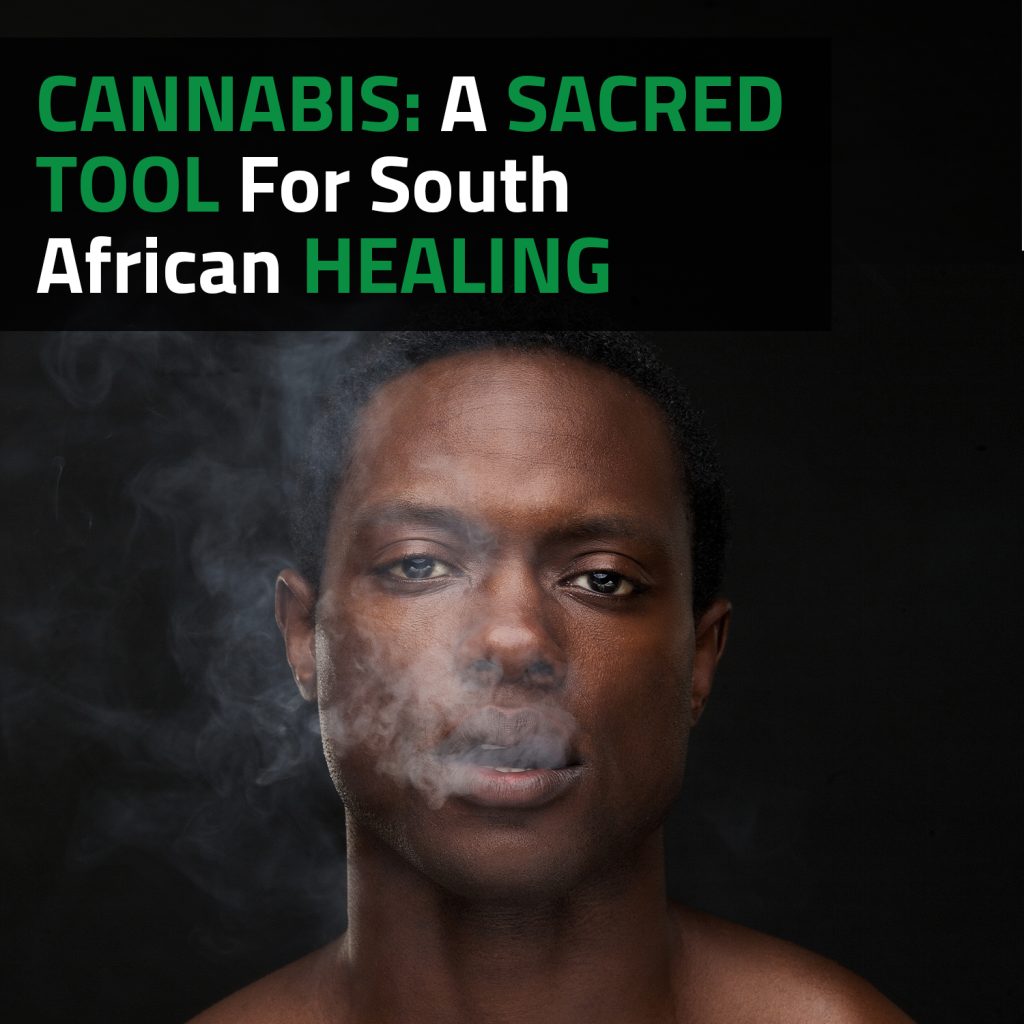Cannabis has played an integral role in the traditional healing practices of South Africa for centuries. This remarkable plant, deeply intertwined with the culture and spirituality of the region, holds a unique place in the history and rituals of traditional South African healing.
The historical roots of cannabis use in South African healing run deep, dating back to ancient times. Indigenous communities across the region have employed cannabis for its therapeutic and spiritual properties, making it an essential element in their healing practices. This long-standing tradition reflects the deep reverence for nature’s gifts and the wisdom passed down through generations.
Traditional Healing’s Cannabis Connection
In the context of South African healing, traditional healers, often known as sangomas or inyangas, are the custodians of ancient wisdom. They play a pivotal role in harnessing the healing potential of cannabis. These healers, who undergo rigorous training and apprenticeships, use cannabis as a means to communicate with ancestral spirits and facilitate the healing process.
Cannabis isn’t merely a botanical resource; it is a bridge between the physical and spiritual realms in South African traditional healing. Its role extends beyond symptom relief to address the root causes of illness, emphasising holistic well-being.
Cannabis: The Soul Of South African Tradition
In South African healing practices, a clear distinction exists between traditional healing and modern medicine. Traditional healing is rooted in the belief that illness often has spiritual or ancestral causes, requiring spiritual remedies. This is where cannabis comes into play, as it is believed to facilitate communication with the spirit world.
Healing Vs. Medicine: A Cultural Contrast
Unlike modern medicine, which often focuses solely on physical symptoms, traditional healing takes a holistic approach. It addresses the interconnectedness of mind, body, and spirit. Cannabis, through its psychoactive properties, is considered a tool for expanding consciousness and connecting with ancestral spirits, aiding the diagnosis and treatment of ailments.
Cannabis is not just a herbal remedy; it is a conduit for spiritual connection. Traditional healers use cannabis to enter altered states of consciousness, allowing them to communicate with the spirit realm. This deepens their understanding of the patient’s condition and guides them in the selection of appropriate remedies.
Forms And Functions: Cannabis In Rituals
The use of cannabis in traditional South African healing rituals is not arbitrary; it is deeply intertwined with the spiritual and medicinal aspects of the practice. Understanding the various forms in which cannabis is employed and its functions within these rituals sheds light on its significance.
- Smoking Cannabis: Smoking is perhaps the most well-known method of using cannabis in traditional South African healing rituals. It is a practice that dates back centuries and involves the inhalation of cannabis smoke for its psychoactive effects. Smoking cannabis is believed to help traditional healers enter altered states of consciousness, enabling them to communicate with ancestral spirits and gain insights into the patient’s condition. The act of smoking itself is considered a sacred ritual, with the exhaling of smoke seen as a means of connecting with the spirit world.
- Brewing Cannabis Teas: In some healing traditions, cannabis is prepared as a tea or infusion. The plant’s leaves and flowers are steeped in hot water to create a medicinal brew. This method is often chosen for its gentle and calming effects. Cannabis-infused teas are used to address a wide range of physical and spiritual ailments, from pain relief to anxiety reduction. The act of brewing and consuming the tea is seen as a communal and therapeutic experience.
- Topical Applications: Cannabis is not limited to internal use in healing rituals. Some traditional healers create ointments or oils infused with cannabis for topical application. These preparations are often used for treating localised physical ailments, such as joint pain or skin conditions. The process of applying these ointments is considered a form of ritualistic healing, with the healer imparting spiritual blessings during the application.
- Offerings to Ancestral Spirits: In certain healing rituals, cannabis is used as an offering to ancestral spirits. It is presented as a symbol of respect and reverence, acknowledging the role of these spirits in guiding and assisting the healer. The act of offering cannabis serves as a bridge between the physical and spiritual realms, creating a sacred space for healing.
Cannabis In South Africa: A Journey Through Time
To appreciate the role of cannabis in South African healing, we must delve into its historical journey within the region. The plant’s significance has evolved over centuries, shaped by various cultural, social, and political factors.
Cannabis likely arrived in South Africa with early Bantu-speaking communities, who brought their knowledge of the plant’s uses from other parts of Africa. Over time, indigenous South African cultures incorporated cannabis into their healing practices, adapting and evolving its role within their traditions.
The perception and legal status of cannabis in South Africa have undergone significant changes throughout history. From being embraced by indigenous cultures to facing colonial restrictions and modern-day legal challenges, the journey of cannabis is intertwined with the nation’s complex history.
Several pivotal moments have defined the role of cannabis in healing practices. These include the legalisation of cannabis for religious use by the Rastafarian community in the 2000s and the recent decriminalisation of private cannabis use, which has rekindled interest in its traditional healing applications.
Cannabis And Ancient Wisdom
Traditional healers in South Africa, known as sangomas or inyangas, are revered figures in their communities. They serve as the custodians of ancient wisdom, with an in-depth understanding of the healing properties of cannabis. Through rigorous training and apprenticeships, these healers learn to harness the plant’s potential, not just for physical healing but also for spiritual guidance. They are the bridge between the physical and metaphysical realms, offering insight and solutions to those seeking healing.
Cannabis is central to many traditional healing rituals in South Africa. Its use is not haphazard but carefully integrated into a broader ceremonial framework. Rituals involving cannabis serve to create a sacred space, invite ancestral spirits, and facilitate communication between the healer, patient, and the spirit world. The reverence with which cannabis is treated underscores its significance in these rituals.
The traditions of cannabis use in South African healing are deeply rooted and have been passed down through generations. Each community and healer may have their unique practices and recipes involving cannabis. These traditions are steeped in cultural significance and remain vital to the preservation of South Africa’s rich heritage of healing.
Cannabis: The Medicine Of The People
Cannabis, often referred to as a “healing powerhouse” in traditional South African practices, is esteemed for its diverse and potent medicinal attributes. These attributes are not only deeply embedded in the healing traditions but are increasingly gaining recognition in modern medicine.
- Pain Relief: Cannabis is renowned for its ability to alleviate pain, making it a valuable resource in traditional healing. Traditional healers have harnessed this attribute to help patients manage chronic pain conditions, such as arthritis or muscular discomfort. The plant’s analgesic properties provide patients with relief from physical suffering, contributing to their overall well-being.
- Anti-Inflammatory Properties: Inflammation is often at the root of various ailments. Cannabis contains compounds like cannabidiol (CBD) that possess anti-inflammatory properties. Traditional healers have used cannabis to address conditions characterised by inflammation, such as skin irritations and digestive issues. Its anti-inflammatory effects help soothe and heal affected areas.
- Anxiety and Stress Reduction: Mental well-being is a crucial aspect of healing, and cannabis is known for its anxiolytic properties. Traditional healers have administered cannabis to patients experiencing anxiety, stress, or other mental health challenges. The plant’s calming effects enable patients to achieve a state of relaxation, conducive to the healing process.
- Spiritual and Psychological Healing: Beyond its physical benefits, cannabis is valued for its role in facilitating spiritual and psychological healing. When used in rituals, it can help traditional healers and patients connect with their inner selves, explore spiritual dimensions, and gain insights into the causes of their ailments. This holistic approach addresses not only the symptoms but also the underlying spiritual and emotional factors contributing to illness.
- Nausea and Appetite Stimulation: Cannabis is recognised for its ability to combat nausea and stimulate appetite. Traditional healers have employed it to aid patients suffering from conditions that lead to loss of appetite or nausea, such as cancer or HIV/AIDS. By alleviating these symptoms, cannabis can improve the patient’s overall quality of life.
Preparing Potions: Administering Cannabis
The preparation and administration of cannabis in traditional South African healing practices are precise and carefully crafted processes. These methods ensure that the plant’s medicinal properties are harnessed to their fullest potential:
- Selection and Harvest: Traditional healers are meticulous in selecting the right cannabis strains and parts of the plant for their preparations. The leaves, flowers, and sometimes even the roots are chosen based on their therapeutic attributes. Harvesting is often done with ritualistic care, with healers offering thanks to the plant for its healing properties.
- Drying and Curing: Once harvested, cannabis is carefully dried and cured to preserve its potency. This process involves controlled drying and ageing, which enhance the plant’s aroma, flavour, and therapeutic qualities. Traditional healers understand the importance of proper curing in achieving optimal healing results.
- Formulation of Remedies: Traditional healers craft specific remedies using cannabis as a central ingredient. These remedies can take various forms, such as tinctures, ointments, teas, or infusions. The choice of formulation depends on the ailment being treated and the healer’s expertise. Each remedy is prepared with great care and often follows time-honoured recipes passed down through generations.
- Dosage and Timing: Administering cannabis is not a one-size-fits-all approach. Traditional healers carefully determine the appropriate dosage and timing for each patient based on their individual needs and the nature of their ailment. This personalised approach ensures the patient receives the right amount of cannabis for effective healing.
- Ritualistic Consumption: In many cases, the consumption of cannabis is integrated into healing rituals. Patients may participate in these ceremonies, guided by the healer, to create a holistic and spiritually enriching healing experience. The act of consuming cannabis within the context of a ritual reinforces the belief in its healing power.
In recent years, there has been a growing interest in validating the healing claims associated with cannabis in South Africa. Researchers are exploring the plant’s chemical composition and its potential applications in modern medicine. This convergence of traditional wisdom and scientific inquiry holds promise for a deeper understanding of cannabis as a healing agent.
Cannabis In South Africa: The Legal And Cultural Clash
The legal status of cannabis in South Africa has been a contentious issue. For many years, it was strictly prohibited, leading to challenges for traditional healers who relied on it for their practices. However, recent legal developments, including the decriminalisation of private cannabis use, have raised questions about how these changes will impact the traditional healing community.
Impact On Healers: Cannabis’ Legal Quandary
Traditional healers who incorporate cannabis into their practices often find themselves in a legal quandary due to shifting legal regulations surrounding the plant:
- Legal Restrictions: For many years, cannabis was strictly prohibited in South Africa, making its use in traditional healing practises illegal. Traditional healers faced the risk of legal consequences for their beliefs and practices, creating a climate of uncertainty and fear.
- Challenges to Healing: The legal restrictions on cannabis posed challenges to traditional healers’ ability to provide holistic healing to their patients. They had to navigate the delicate balance of adhering to their cultural beliefs while avoiding legal trouble, leading to a significant impact on their practice.
- Recent Decriminalisation: Recent legal changes in South Africa, such as the decriminalisation of private cannabis use, have offered some relief to traditional healers. However, the full scope of how these changes will affect their practices is still evolving, and many questions remain about the legality of using cannabis in specific healing rituals.
Bridging Beliefs And Regulations: Cultural Hurdles
The clash between cultural beliefs and legal regulations presents significant cultural hurdles for both traditional healers and policymakers:
- Cultural Significance: Cannabis holds deep cultural and spiritual significance in South African healing practices. It is seen as a conduit to ancestral wisdom and an integral part of the healing process. Traditional healers argue that restricting its use infringes upon their cultural rights and heritage.
- Legal Frameworks: Policymakers, on the other hand, must grapple with the need to uphold the rule of law while respecting cultural diversity and individual rights. Finding a legal framework that accommodates the cultural practices of traditional healers is a complex and ongoing challenge.
- Community Perspectives: Bridging the gap between cultural beliefs and legal regulations requires engaging with local communities and traditional healers. It is essential to foster dialogue and mutual understanding to ensure that policies respect cultural heritage while addressing public health and safety concerns.
Cannabis: From Tradition To Today
In the face of changing legal and cultural dynamics, traditional healing practices involving cannabis are evolving. Some healers are reimagining their methods to adapt to contemporary contexts, integrating aspects of modern medicine and technology while preserving the core spiritual elements of their practices.
Generational Shift: Cannabis’ Changing Perception
As younger generations come of age, their perceptions of cannabis and traditional healing are evolving. While some embrace these practices, others may be influenced by modern medicine and changing societal norms. Understanding how younger South Africans perceive the role of cannabis in healing is crucial for the preservation of these traditions.
Harmonising the Old and New: Integrating Healing Practices
The harmonisation of traditional healing practices involving cannabis with modern approaches is a delicate process that aims to preserve cultural heritage while improving healthcare delivery:
- Preserving Ancient Wisdom: Traditional healers are custodians of ancient wisdom. Efforts are being made to preserve and document their knowledge of cannabis and its healing properties, ensuring that this invaluable heritage is passed onto future generations.
- Integrating Modern Medicine: Some traditional healers are open to integrating aspects of modern medicine into their practices. This approach can provide patients with a broader range of healthcare options and may enhance the effectiveness of healing rituals.
- Scientific Validation: Scientific studies are being conducted to validate the healing claims associated with cannabis in South African traditional practices. This intersection of traditional wisdom and scientific inquiry holds promise for a more comprehensive understanding of cannabis as a healing tool.
- Cultural Sensitivity: Policymakers are working to develop regulations that respect cultural practices while ensuring safety and efficacy. This involves consulting with traditional healers, seeking their input, and developing policies that strike a balance between cultural sensitivity and public health.
Illuminating Insights: Cannabis In South African Healing
Cannabis remains a timeless companion in the world of South African healing. Its enduring role in traditional practices, spanning generations, speaks to its profound significance. Understanding the plant’s spiritual, medicinal, and cultural dimensions enriches our appreciation of its place in South Africa’s healing tapestry.
As South Africa grapples with changing legal and cultural landscapes, the future of cannabis in healing practices is uncertain yet promising. The ongoing dialogue between traditional healers, modern medicine, and policymakers will shape the path forward, ensuring that these ancient traditions endure and continue to provide healing and spiritual guidance.
The role of cannabis in South African healing practices offers a window into the broader world of traditional healing. It invites us to explore the diverse ways in which cultures around the world have harnessed the power of nature to heal the mind, body, and soul. Through this understanding, we can appreciate the universal human quest for wellness and spiritual connection.
-
PieceMaker – Kashed
R250.00 – R300.00 -
DAVINCI MIQRO-C Glove
R250.00 -
RAW Rolling Tray – Brazil / 28cm (NEW)
R175.00Original price was: R175.00.R148.75Current price is: R148.75. -
DynaVap – Stainless Steel CCD (3-Pack)
R150.00










